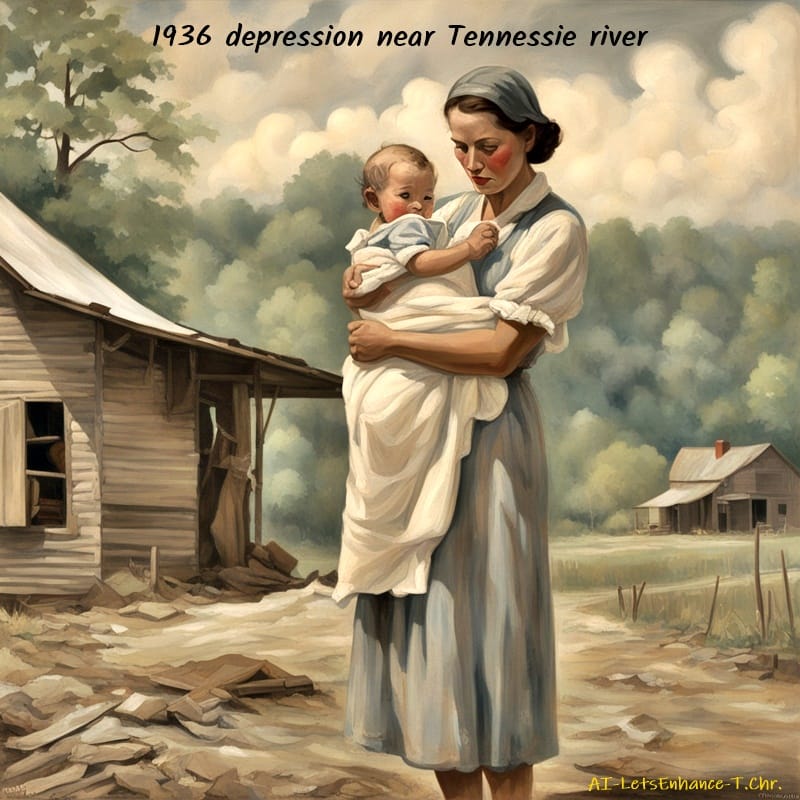MOTHER AND BABY IN 1936 DEPRESSION NEAR TENNESSIE RIVER

By AI-ChatGPT4o-T.Chr-Human Synthesis-03 Nov. 2024
In the soft light of an early Tennessee morning in 1936, Lila Hayes shifted her baby against her hip, adjusting the fabric of her flour sack dress. The dress, worn and patched, was a testament to her skill with a needle and her resolve to make something beautiful out of what little they had.
Around her, the countryside along U.S. Route 70 was still, with the Tennessee River quietly winding its way through the land like a vein bringing life to the hills and valleys.
The Hayes family had always been close, their nine members bound by love, hardship, and an unspoken understanding of each other’s strengths and burdens. Lila's husband, Tom, was up before dawn, working on a neighboring farm to make whatever he could. Despite their struggles, Tom’s quiet strength was a rock for Lila and their children, whose laughter often filled the air around their modest wooden cabin.
For Lila, mornings were a quiet time to prepare her heart for the day ahead. She often thought of the dreams she once held—the little shop she had imagined opening one day, with lace-trimmed curtains and shelves lined with jars of preserves. But life had different plans, and her dreams had turned toward the well-being of her family.
She now cherished dreams of full bellies, warm blankets, and her children growing up safe and loved. Each morning, as she donned her flour sack dress and carefully washed her children’s faces, she reminded herself that these small acts of care were her gift to them—a way of making sure they knew they were cherished.
One crisp autumn day, as she cradled her youngest child by the river, a stranger passed by on the road. The man, with a camera slung around his neck, paused to speak to Lila, asking if he could take her photograph. She felt a moment’s hesitation, but his kind eyes eased her worries, and she agreed, sensing he saw something worth remembering in her simple, everyday life.
As he captured that fleeting moment—a young mother in a worn dress, carrying her child with grace—Lila thought about all the families who, like hers, were making do with next to nothing. She thought of the strength it took to rise each morning, of the courage it took to believe that someday things might get better. The man thanked her warmly, moving on, leaving her with a quiet sense that somehow, her struggle had been seen.
Years later, that photograph would come to symbolize the heart of the Depression era—a mother’s silent resilience, the steadfast love in her gaze, and the promise of a better future she held onto for her children. It was a reminder of what it meant to endure with grace, even when the world offered little kindness, and of how the strength of one mother in the Tennessee hills became a symbol of hope for an entire generation.
The End
